
Newsletter Subscribe
Enter your email address below and subscribe to our newsletter

Enter your email address below and subscribe to our newsletter
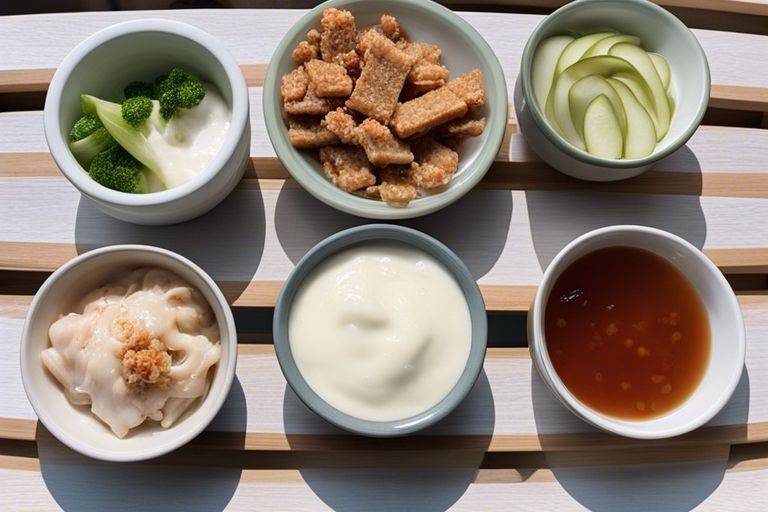
Over the years, I’ve come to realize the importance of nurturing a healthy gut for overall well-being. It all starts with the foods we eat, and incorporating probiotic-rich options can make a world of difference. In this article, I’ll share with you my top picks for probiotic foods that can help restore balance in your gut and keep those digestive issues at bay.
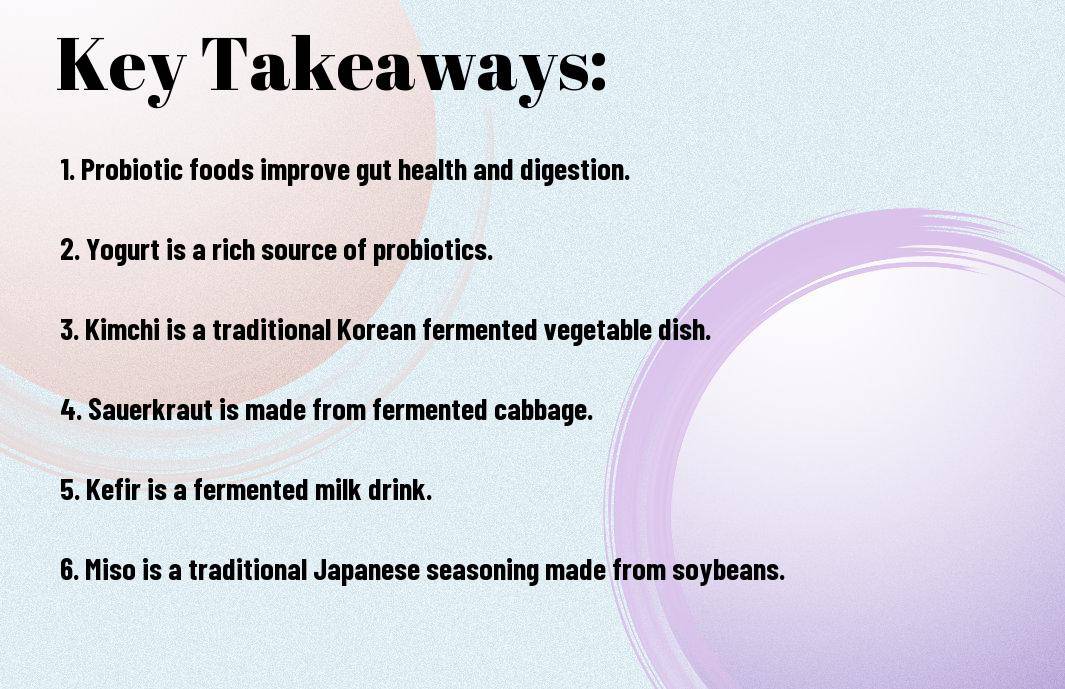
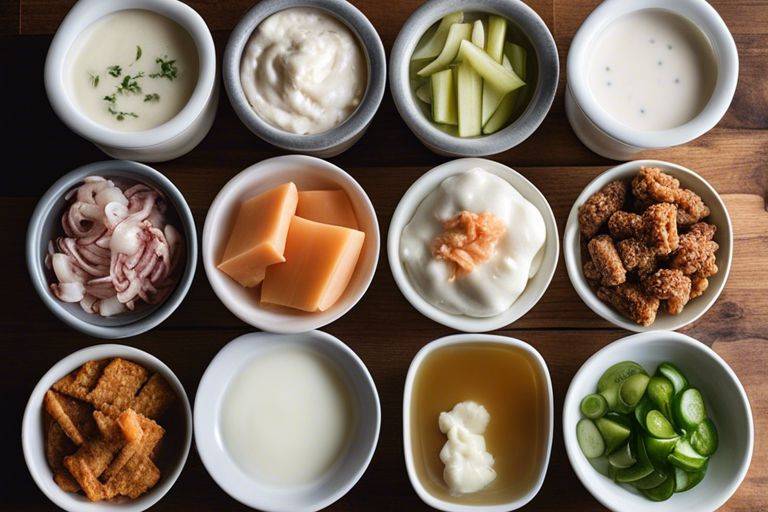
One of the key factors that impact our overall health is the state of our gut. The term “gut health” refers to the balance of microorganisms that live in the digestive tract. These microorganisms, known as gut flora or microbiota, play a crucial role in functions such as digestion, immunity, and even mood regulation.
One of the consequences of poor gut health is digestive issues like bloating, constipation, and diarrhea. However, the impact of an unhealthy gut extends far beyond just stomach troubles. Research has shown that poor gut health can also lead to weakened immunity, chronic inflammation, and even mental health issues such as anxiety and depression.
Importance of maintaining a healthy gut cannot be overstated. Your gut is home to trillions of bacteria that are necessary for various bodily functions. A balanced gut flora not only aids in proper digestion but also supports a strong immune system and overall well-being.
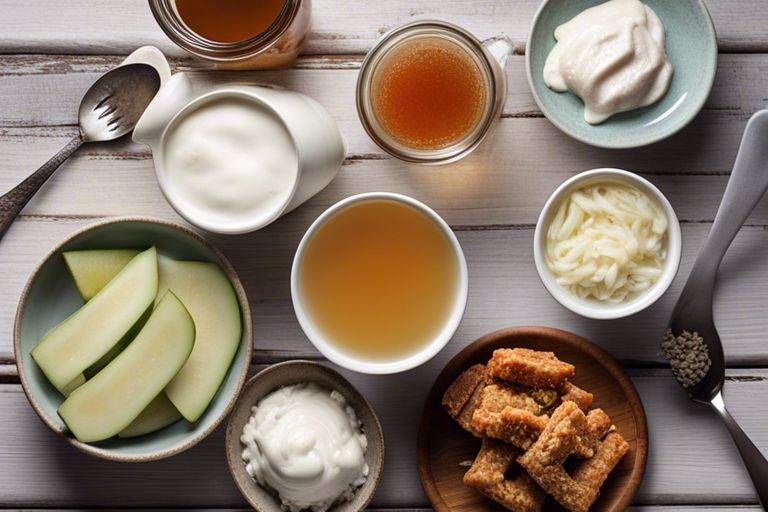
What are probiotics, you may ask? Well, they are live bacteria and yeasts that are good for your health, especially your digestive system. These microorganisms are often referred to as “good” or “friendly” bacteria because they help maintain a healthy balance in your gut.
Health is necessary when it comes to probiotics. When you consume probiotics, you are ingesting these beneficial bacteria that can help restore the natural balance of your gut microbiota. This can aid in better digestion, absorption of nutrients, and support your immune system.
Another key benefit of probiotics is their ability to outcompete harmful bacteria in your gut, preventing issues like digestive disorders and inflammation. By promoting a healthy balance of gut flora, probiotics can also reduce the risk of heart disease and boost mental health.
The key to good gut health lies in consuming foods rich in probiotics. Yogurt has been hailed as a classic probiotic food due to its live and active cultures, such as Lactobacillus and Bifidobacterium, which promote a healthy balance of gut bacteria.
Kefir is a fermented milk drink that is packed with probiotics, including beneficial yeast and bacteria. The tangy taste of kefir makes it a delicious and versatile addition to your diet, perfect for smoothies or enjoyed on its own.
This fizzy and tangy drink is a powerhouse of probiotics that can help support digestion, boost immunity, and improve overall gut health. Plus, it’s easy to make at home!
Any meal can be elevated with a side of sauerkraut, a fermented cabbage delight that is not only delicious but also rich in probiotics. This probiotic powerhouse is low in calories and high in fiber, making it a great addition to your diet.
Classic sauerkraut undergoes a fermentation process that creates a host of beneficial bacteria, including Lactobacillus. Incorporating this tangy treat into your meals can do wonders for your gut health.
Probiotic-rich kimchi is a staple in Korean cuisine, known for its spicy kick and gut-boosting benefits. This fermented vegetable dish typically contains cabbage, radishes, and a variety of seasonings, all brimming with beneficial bacteria.
Made through lacto-fermentation, which enhances the probiotic content, kimchi is not only flavorful but also a fantastic way to introduce more probiotics into your diet. Its fiery flavor adds a punch to any meal while supporting your gut health.
On top of being a flavorful addition to soups and marinades, miso is a fermented soybean paste that is rich in probiotics. Made by fermenting soybeans with a fungus called koji, miso offers a salty and savory flavor profile that can enhance a variety of dishes.
Plus, miso is full of probiotics like Lactobacillus and Bifidobacterium, which can aid in digestion and improve gut health. Adding miso into your cooking repertoire is a tasty way to boost your probiotic intake.
Food sauerkraut and beverages can also be sources of probiotics, like kombucha. This effervescent fermented tea drink is teeming with beneficial bacteria and yeast, thanks to the fermentation process involving sugar and a symbiotic culture of bacteria and yeast (SCOBY).
Sipping on kombucha not only offers a refreshing and fizzy experience but also introduces a variety of probiotics into your gut. Including this trendy drink in your daily routine can be a flavorful way to support your gut health.
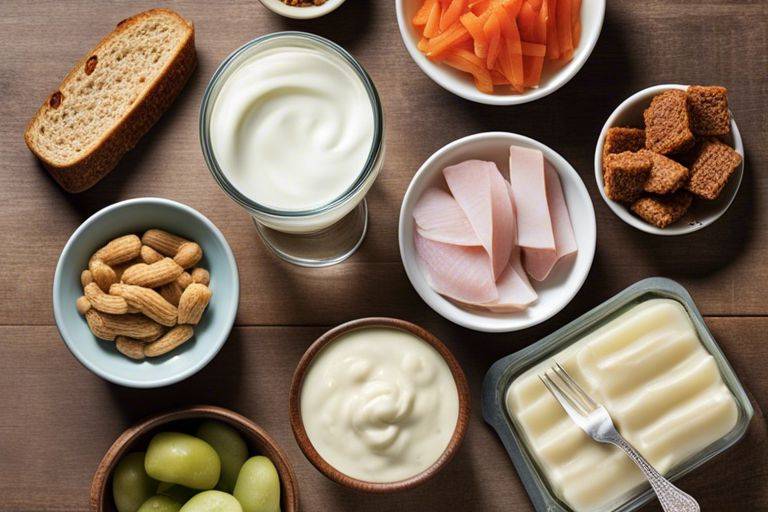
After reading about the 6 probiotic foods to support your gut, you might be wondering how to easily include these beneficial foods into your daily meals.
Small changes can make a big impact on your gut health. Start by incorporating one probiotic food into your diet, such as yogurt or kefir, and gradually increase variety as your body adjusts.
For optimal gut health benefits, try combining different probiotic foods in your diet. Mix and match options like sauerkraut, kimchi, and miso to introduce a diverse range of beneficial bacteria into your digestive system.
Introduce a variety of probiotic foods into your meals to ensure you’re getting a wide array of beneficial bacteria strains. This diversity can help promote a healthier gut microbiome and overall digestive wellness.
Into your everyday routine, incorporate probiotic foods like yogurt as a snack or kefir in your morning smoothie. By making probiotic-rich foods a regular part of your diet, you can support your gut health consistently.
Your commitment to regularly consuming probiotic foods can lead to long-term benefits for your gut health, immunity, and overall well-being. Making it a habit ensures you’re consistently nourishing your body with beneficial bacteria.
Now, if you’re looking to enhance your gut health with probiotic-rich foods, you’ve probably come across various myths and misconceptions about these beneficial bacteria. Before you look into the world of probiotics, let’s debunk some common myths to help you make informed choices. For more information on probiotic-rich foods, check out 11 Probiotic Foods That Are Super Healthy.
Only associating probiotics with digestive problems is a common misconception. While probiotics can support digestive health, their benefits extend far beyond just soothing an upset stomach. They play a crucial role in boosting your immune system, mental health, and overall wellbeing.
With the growing popularity of probiotics, the market offers a wide range of options to fit various budgets. Incorporating probiotic-rich foods like yogurt, kefir, and kimchi into your diet can be cost-effective and provide you with diverse strains of beneficial bacteria without breaking the bank. Investing in your gut health now can save you from potential health issues down the road.
Another vital point to consider is that prioritizing your gut health through probiotic-rich foods may even save you money in the long run by potentially reducing healthcare costs associated with digestive disorders and other health issues.
Found solely in supplements is another misconception surrounding probiotics. While supplements are a convenient option, probiotics are naturally present in several everyday foods like yogurt, sauerkraut, miso, and tempeh. By including a variety of probiotic foods in your diet, you can introduce different strains of beneficial bacteria and enjoy a more diverse gut microbiome.
Myth: Don’t limit yourself to supplements when probiotics are abundantly found in many delicious and easily accessible foods. Incorporating a mix of probiotic-rich foods into your daily meals can be a tasty and wholesome way to support your gut health.
Unlike regular foods, probiotic foods contain live bacteria that can improve your gut health. When dicking out the best probiotic foods, it’s necessary to consider a few key factors to ensure you are getting the most benefits for your digestive system.
Choosing probiotic foods with live cultures is crucial for ensuring the effectiveness of the probiotics. Look for products that mention phrases such as “contains live and active cultures” on the packaging to ensure you are getting the most benefit for your gut health.
Check the labels of probiotic foods carefully to avoid products that contain added sugars and preservatives. These ingredients can counteract the benefits of the probiotics and potentially harm your gut health in the long run.
Your lifestyle and dietary preferences play a role in selecting the best probiotic foods for you. For instance, if you follow a plant-based diet, fermented foods like kimchi or sauerkraut can be excellent probiotic sources that align with your eating choices.
Considering all points, incorporating probiotic foods into your diet can greatly benefit your gut health. These foods not only support digestion but also boost your immunity and overall well-being. By including items like yogurt, kefir, and kimchi into your meals, you can take proactive steps towards better gut health. To learn more about probiotic foods, check out 10 Probiotic Foods That WIll Help Improve Your Gut Health.
A: Probiotic foods contain live beneficial bacteria that are good for your gut health.
A: Gut health is important because it plays a key role in digestion, immune function, and overall well-being.
A: The top probiotic foods include yogurt, kefir, sauerkraut, kimchi, miso, and kombucha.
A: Probiotic foods help improve gut health by introducing good bacteria into the digestive system, which can help balance the microbiome and support overall digestion.
A: While probiotic foods are generally safe for most people, some individuals may experience mild digestive issues such as gas or bloating when first introducing them into their diet.
A: Some studies suggest that probiotic foods may help alleviate symptoms of IBS and IBD, but individual results may vary. It’s best to consult with a healthcare provider before using probiotics for specific conditions.
A: You can incorporate more probiotic foods into your diet by including items like yogurt for breakfast, kimchi in stir-fries, or kombucha as a refreshing beverage option.